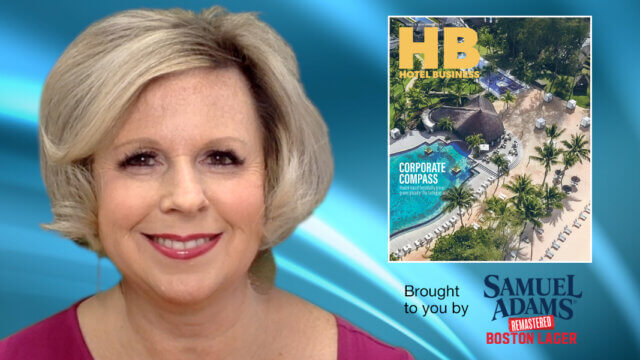Is safety the new guest amenity? During the latest edition of Hot Topics, wellness and industry professionals analyzed this very question. During the session, “Getting back to well: Restoring consumer confidence in travel,” with sponsor support from Delos, leaders discussed topics surrounding cleanliness, sanitation and brand trust, and how these are guiding the future of hospitality protocols.
Moderated by Hotel Business VP, Content and Creative Christina Trauthwein, the panelists included Peter Scialla, COO, Delos; Elie Khoury, EVP of operations, Aimbridge; Sue Spinney, VP, global ground transport, Expedia Group; Barbara Spurrier, executive director, Well Living Lab, a Delos and Mayo Clinic collaboration; and Dr. Zachary Pope, research scientist, Well Living Lab.
Sanitation procedures are no longer hidden behind closed doors. Hotels are wanting, and even needing, to show how they are keeping their properties clean. New protocols and technology need not only be visible but quite possibly, front and center, not unlike a shiny, new hotel amenity—but, that technology also needs to be effective.
“I think it’s all about transparency and accountability,” Scialla said. “Guests need to trust statements about best practices but also that there’s been validation. Are these just claims by the stakeholder or have they been vetted through science? We need to raise public awareness about what to look for in addressing these concerns.”
Especially during a time when advances in science could be hospitality’s saving grace, scientific proof is key, leading way to potential hotel partnerships and third-party accreditations.
“The idea of transforming anything, we can’t do that alone,” Spurrier said. “Partnerships are critical. We keep learning about this [COVID and vaccinations]…it’s a complicated discussion.”
The struggle with how to approach vaccination requirements is one that traverses all industries, but for hospitality, technology may be a good start in increasing consumer confidence.
“We need to give voice to actionable items born out of empirical research,” Pope said. “We, as scientists, have to be able to validate what we’re working with. Source control is ultimately the most important thing about any illness. We need to mitigate transmission with source control. If you take care of the air, you take care of the surfaces too.”
Air filtration is not a new science, Scialla noted, but hotels may want to rethink keeping filtration devices on the floor or hidden in a corner.
“Putting something on a wall that’s visible is marketing power but also backed by science that it’s more effective,” he said. “Air quality is key for meeting space—even if folks who are sitting six feet apart. It’s about choosing the right technology that doesn’t have any harmful byproducts.”
Guests will take note of these safety touchpoints, Spinney said, and won’t shy away from sharing their thoughts with other consumers.
“Health and safety are showing up more in reviews,” she said. “I think requirements will change, but getting ahead of reviews, responding to reviews and communication is critical at this time.”
Having wellness partnerships can be a major benefit to hoteliers who are looking for additional ways to gain trust and confidence among guests.
“The more you educate owners, the more they sign in,” Khoury said. “We’re starting to realize the importance of third-party accreditation and ROI. Give owners the option to participate.”
Look out for more coverage on the Hot Topics webinar in the May 15 issue of Hotel Business.
